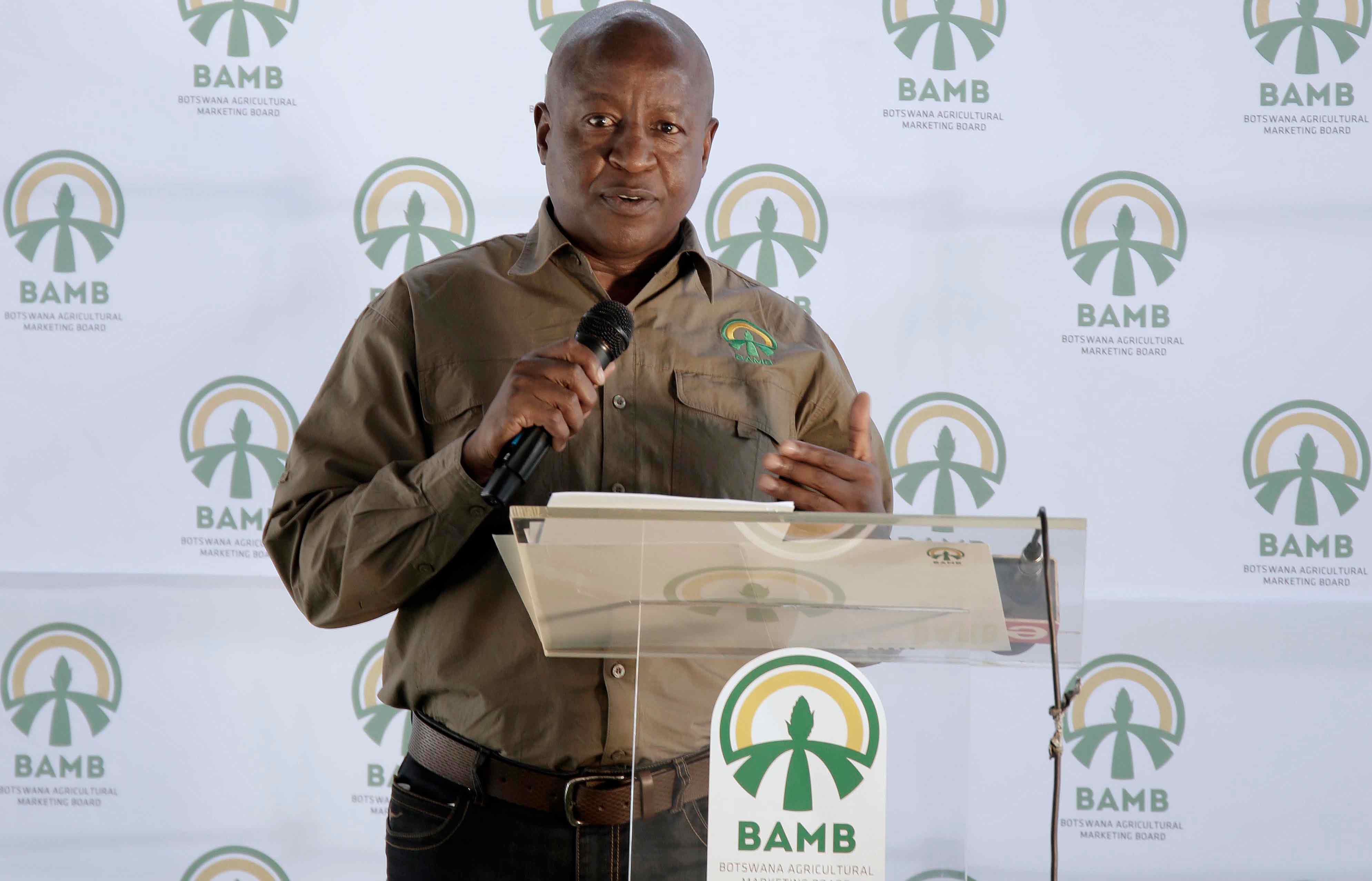- Sign contracts with Panda farmers to export beans to Asia
- 20 000 tonnes of mung beans exported annually
- BAMB also exports sorghum
- Over P140m made from export revenue
- CEDA/BAMB partner toward funding Panda farmers
KEABETSWE NEWEL
For the first time in history, the Botswana Agricultural Marketing Board (BAMB) will buy all beans produced at Pandamatenga and Mosisedi farms for export to the Asian and Indian markets, the chief executive of BAMB, Leonard Morakaladi, has said.
Beans, specifically Mung Beans, are produced in bulk at Pandamatenga. Initially, BAMB procured only grain. However, over time the commercial farmers at Pandamatenga found agents for export to Asia, Canada and South Africa.
With commercial farmers here enjoying concessionary funding from financiers like the Citizen Entrepreneurial Development Agency (CEDA), Morakaladi said it was befitting that proceeds of their produce returned to Botswana. He explained that the agents who buy mung beans directly from farmers in Botswana for export to Asia end up adding a mark-up on prices for themselves, bypassing BAMB for the profits and overlooking the need to further develop commercial farming.
Morakaladi said they were exploiting Asia’s ever-increasing demand for food that is occasioned by that continent’s ever-expanding population, in the process generating much needed export revenue for Botswana.
The Botswana Gazette has established that at least 20 000 tonnes of beans could be exported on an annual basis to China, India and Canada. Morakaladi said Pandamatenga farmers combined produce over 20 000 tonnes of beans annually, which will now be directly sold to BAMB.
“We will then cut out the South African middleman and export the beans directly to India, China and Canada,” he said, adding that BAMB has agreed with the commercial farmers that because of the concessionary lending that the famers enjoy, they should sell their produce to BAMB.
The chief executive of CEDA, Thabo Thamane, said farmers contracted by BAMB will automatically qualify for CEDA concessionary funding. Before BAMB contracted the farmers, they sold to an Indian company called EGT and a Canadian company called AGT which buy the beans in South Africa and transport them to China, Canada and India.
One tonne is bought for US$675, which is well over P7000. For 20 000 tonnes, the farmers can collectively make P140 million annually from the sale of beans only. However, BAMB will sell at a higher price to the Asian market. Thamane revealed that BAMB offers more lucrative prices for beans, some of which are used locally in government feeding schemes. According to Morakaladi BAMB will start to sell sorghum to markets like South Africa because Botswana is self-sustaining in sorghum.
Morakaladi and Thamane were speaking at the signing of a Memorandum of Understanding (MoU) at CEDA last week. According to Thamane, the MoU allows for BAMB and CEDA to partner towards food security. Terms of the MoU are such that farmers contracted by BAMB will automatically qualify for concessionary lending from CEDA.
“We have invested over P872 million in commercial farming, so we believe we also need a strategic ecosystem in which we can work with BAMB to promote farming,” said Thamane.
He added that funds extended to farmers make up 36 percent of CEDA’s loan book, which demonstrates CEDA’s commitment to funding farmers for food production.
CEDA, according to Morakaladi, will also use BAMB’s nationwide footprint and network to avail its services to farmers. In collaboration, Morakaladi said the two quasi-government institutions will also adopt cluster farmers in communities to assist substance farmers grow into commercial farming and increase the national produce.




